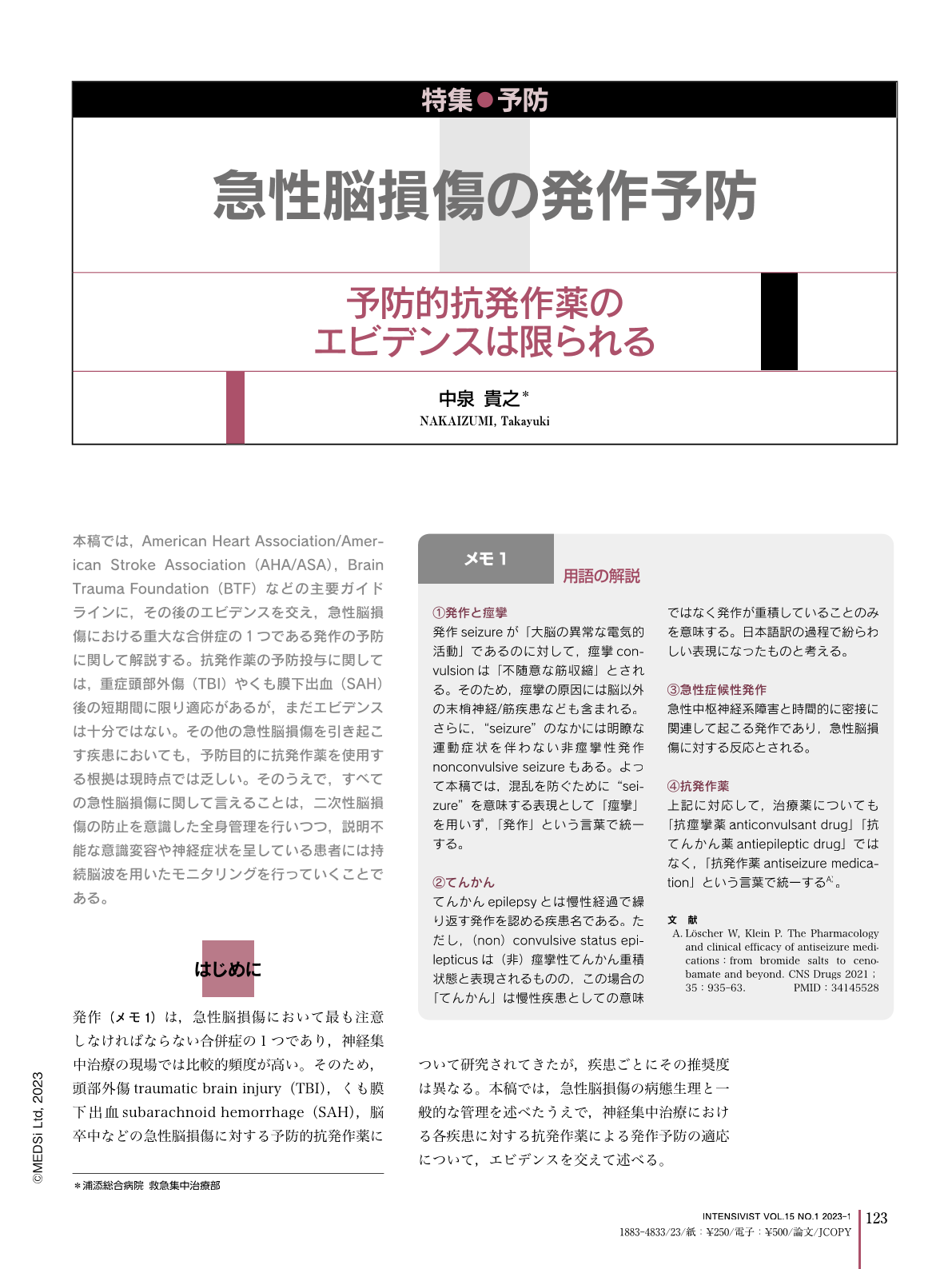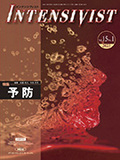Japanese
English
- 有料閲覧
- Abstract 文献概要
- 1ページ目 Look Inside
- 参考文献 Reference
本稿では,American Heart Association/American Stroke Association(AHA/ASA),Brain Trauma Foundation(BTF)などの主要ガイドラインに,その後のエビデンスを交え,急性脳損傷における重大な合併症の1つである発作の予防に関して解説する。抗発作薬の予防投与に関しては,重症頭部外傷(TBI)やくも膜下出血(SAH)後の短期間に限り適応があるが,まだエビデンスは十分ではない。その他の急性脳損傷を引き起こす疾患においても,予防目的に抗発作薬を使用する根拠は現時点では乏しい。そのうえで,すべての急性脳損傷に関して言えることは,二次性脳損傷の防止を意識した全身管理を行いつつ,説明不能な意識変容や神経症状を呈している患者には持続脳波を用いたモニタリングを行っていくことである。
The latest recommendations and current evidence for seizure prophylaxis for patients with acute brain injury are summarized, because seizures are an important complication in critically ill patients. The evidence supporting short-term antiseizure medication administration in patients with severe traumatic brain injury and subarachnoid hemorrhage is not sufficient. Currently there are no data supporting routine use of antiseizure drugs as primary prophylaxis for patients with other neurological illnesses. With all forms of acute brain injury, it is important that we manage neuro-critical care to prevent secondary brain injury and monitor whether there is nonconvulsive seizures (NCS) or nonconvulsive status epilepticus (NCSE) with Continuous electroencephalography (cEEG) in patients with an otherwise unexplained depressed mental state or neurological deficit.

Copyright © 2023, MEDICAL SCIENCES INTERNATIONAL, LTD. All rights reserved.


